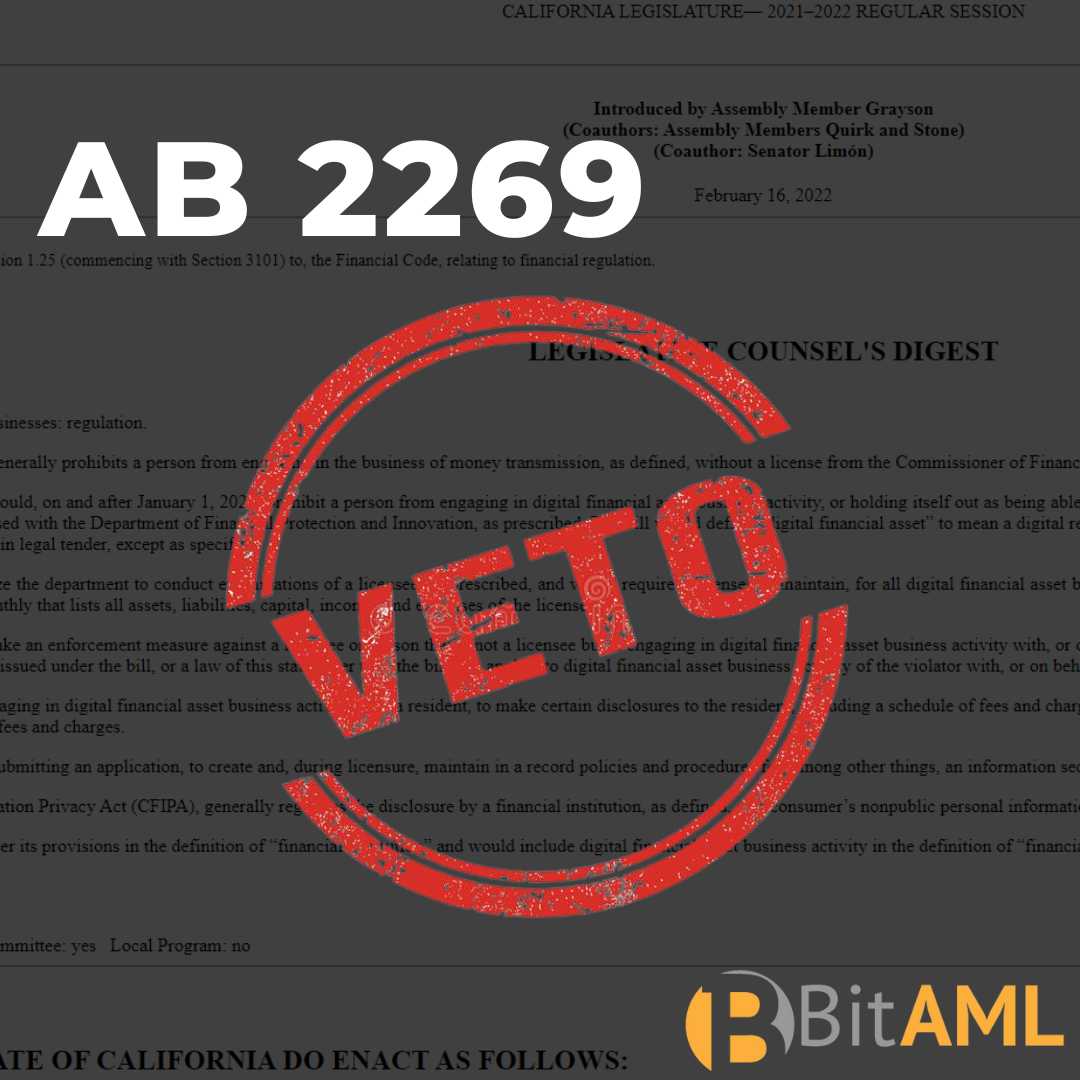It’s no secret that state regulators and the cryptocurrency industry have a rocky history together.
Both frequently misunderstand and work past each other, even though regulators and cryptocurrency business owners share the same goal: fostering the conditions that lead to a fair, competitive, and healthy market.
The relationship is also somewhat strained by the fact that business owners sometimes (and understandably) feel confused about what regulators actually require. In addition to federal regulations, each state has its own unique laws and regulations affecting cryptocurrency businesses.
A lack of communication between business owners and regulators can lead to oversights. One of the biggest is the question of whether a state requires licensure for money transmission. How do you find out what your state requires? Can you just call up a state regulator out of the blue and ask?
Keeping up with changing state requirements for money transmission can feel like a full-time job. Legislation can change at any time and without any notice.
How are you supposed to stay current with laws and compliance requirements in every state you’re located or doing business in? How can you find out about legislation changes before a state’s regulatory team contacts you about noncompliance?
The key is building a good relationship with the regulators in the state(s) where you operate. But how?
Here are some tips on how to begin.
1. Proactive, Open Communication
Keeping lines of dialogue open with regulators in each state you are located or doing business in is a solid first step toward fostering mutually-beneficial relationships.
A good relationship with regulators helps you remain current on changes regarding cryptocurrency regulation. It gives state regulators an opportunity to share forthcoming regulatory changes so you know whether your cryptocurrency business may be affected and how to respond.
It also creates a feedback forum for regulators, who can learn from the cryptocurrency businesses as their “boots on the ground.”
Keep good documentation in line with what state regulators share with you about compliance requirements. Your documentation creates a paper trail that shows you have ongoing communication with state regulators and take recordkeeping seriously. Your documentation can help with law enforcement investigations, making their work easier.
2. Frequent, Scheduled Touchpoints
State regulators are much more responsive now to questions regarding money transmission laws than they were two years ago. According to the March 2017 Coin Center Report State Digital Currency Principles and Framework, individual states were just beginning to look at how cryptocurrency and the businesses that use them to provide consumer products interacted with money transmission and consumer protection policy. Questions being addressed included who must be licensed, how control of customer cryptocurrency would be defined, and how startups could be encouraged while still protecting consumers.
Because there wasn’t much state legislation on money transmission laws, many crypto entrepreneurs were spending upwards of $20,000 on a “no-action” letter to state regulators and not receiving answers. Since state regulators were busy researching cryptocurrency businesses, calls to their offices went unanswered.
In our experience, that has changed of late. Almost every state money transmitter regulatory authority is much more responsive and open to communiques from business owners in the crypto space.
As a cryptocurrency compliance consulting firm that regularly calls state money transmitter regulators, we’re encouraged by what we see and hear when it comes to this evolving dynamic. Just as we’ve established strong dialogues with state money transmitter regulators to promote transparency, cooperation, and information sharing, you can as well.
3. Good Documentation Of Changing State Regulations
We can’t emphasize this enough: state regulations regarding money transmission can change at any time. You need to be in regular contact with state regulators to stay current on their stance regarding cryptocurrency, and diligent when it comes to documenting those interactions.
A perfect example is Nevada’s recent decision requiring cryptocurrency kiosks operators to secure licensing as money transmitters. Following a legislation session closing in May 2019 without passing a proposed cryptocurrency bill, the state’s regulatory team, abruptly and without announcement, changed its interpretation of what constituted a money transmitter.
 BitAML Senior Advisor Annelise Strader spoke with state regulator Julie Hanivold on behalf of a BitAML customer affected by the change. The regulator later stated that she began reviewing the cryptocurrency kiosk licensing matter one year prior to the legislative session. Despite the bill failing to pass, Hanivold self-determined to reinterpret current statutes regarding state money transmissions.
BitAML Senior Advisor Annelise Strader spoke with state regulator Julie Hanivold on behalf of a BitAML customer affected by the change. The regulator later stated that she began reviewing the cryptocurrency kiosk licensing matter one year prior to the legislative session. Despite the bill failing to pass, Hanivold self-determined to reinterpret current statutes regarding state money transmissions.
Although all requirements for money transmitter licensure are posted on Nevada’s website, there are no plans to issue a press release on the matter. Hanivold did plan to call back about a dozen businesses that had inquired about legislature in the past year.
She said the state’s regulatory team was not going to hunt for and penalize any unlicensed kiosks. However, the regulatory team would begin notifying owners if no action had been taken by November.
If it weren’t for the open communication and proactivity of our compliance team and client, our client may not have known about the Nevada legislation change. They could’ve faced fines, penalties, and jail time for not being licensed as a money transmitter, even though no formal announcement was made.
Here’s the bottom line:
Fostering good, open relationships with state regulators will prevent you from slipping into noncompliance due to lack of knowledge about current state legislation. Stay informed on law and regulation changes through regular conversations with state regulators, and document those discussions thoroughly.
Key Takeaways For Cryptocurrency Businesses
Openly communicate with state regulators to remain current on changes in legislation that affect your crypto business compliance.
Document everything required by the laws of each state you’re located or doing business in to create a paper trail of compliance.
State regulators are increasingly responsive to your questions and concerns related to money transmitter licensure.
Get help with building a good relationship with state regulators and staying on top of legislative changes. Schedule a free consultation with the compliance experts at BitAML today.


